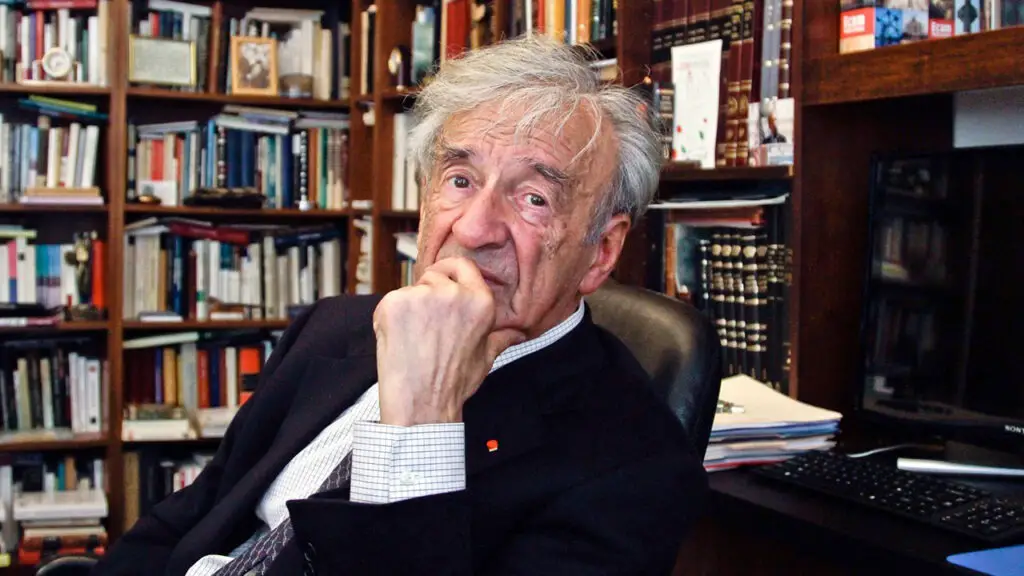Elie Wiesel, a Holocaust survivor, Nobel laureate, and prolific author, has gained fame through his profound and poignant works. Elie Wiesel books, encompassing titles like “Night,” “Dawn,” and “The Gates of the Forest,” serve as powerful testaments to the horrors of the Holocaust, reflections on personal experiences, and explorations of the resilience of the human spirit.
What do we discover in Elie Wiesel’s books?
This article embarks on a journey through these significant literary creations, uncovering the harrowing experiences of Holocaust survivors etched onto their pages.
A Legacy of Remembrance and Reflection:
Elie Wiesel’s literary oeuvre stands as a poignant tribute to the millions who suffered during the Holocaust. His written words act as a bridge connecting past and present, ensuring that the memories and lessons of the Holocaust remain relevant to contemporary generations. Through his books, Wiesel implores readers to never forget the horrors of the past while emphasizing the importance of vigilance against hatred and prejudice.
Elie Wiesel Memoir: “Night” and the Heart of Darkness:
At the heart of Elie Wiesel’s literary contributions is his memoir “Night.” Wiesel’s personal narrative provides an intimate insight into the atrocities of the Holocaust. Through collections of his own experiences in Auschwitz and Buchenwald, he takes readers on an emotional journey from innocence to a loss of faith, and ultimately to a world of hope. The raw honesty of Wiesel’s prose makes an indelible mark on readers, serving as a powerful reminder of the capacity for both cruelty and resilience within the human spirit.
Elie Wiesel Holocaust Reflections: Echoes of a Dark Chapter:
Wiesel’s books, particularly his memoirs, serve as the best literary forms for survivors. His writing is about suffering, loss, and the human spirit’s bridge, the gap between personal experience and better understanding. By bearing witness to his own trauma and sharing it with the world, Wiesel imparts a sense of urgency to remember, learn, and prevent history from repeating itself.
Dawn: Wrestling with Moral Dilemmas Amidst the Holocaust:
In “Dawn,” another masterpiece by Wiesel, he continues to grapple with the moral complexities experienced by the Holocaust. This novel introduces readers to Elisha, a Holocaust survivor turned resistance fighter, faced with the task of executing a British officer. Through Elisha’s internal struggle, Wiesel probes the boundaries between justice and revenge, oppressor and oppressed. As readers, we are challenged to confront the intricate decisions that arise within the crucible of conflict and oppression.
The Gates of the Forest: Identity and Belonging After the Holocaust:
Wiesel’s exploration of identity resonates powerfully in “The Gates of the Forest.” The novel narrates the life of Gregor, a Holocaust survivor who seeks solace in a monastery, grappling with his Jewish heritage, past traumas, and evolving spiritual convictions.
Through Gregor’s journey, Wiesel delves into the complexities of rebuilding one’s life post-Holocaust, where identity is fragmented, and a sense of belonging is sought amidst the ruins.
Elie Wiesel’s Legacy: Echoes of the Holocaust and Lessons for Humanity:
Across his corpus, including “Night,” “Dawn,” and “The Gates of the Forest,” Wiesel doesn’t merely recount historical events; he extracts profound lessons from them.
Wiesel’s works amplify the importance of empathy, compassion, and vigilance against hatred. His legacy is a testament to the power of literature to ensure that the horrors of the Holocaust are never removed from our collective memory. His writings stand as a strong memoir to confront the darkest aspects of the past, acknowledging the sufferings while fostering a commitment to a better world.
Elie Wiesel’s literary contributions, epitomized by “Night,” “Dawn,” and “The Gates of the Forest,” offer a unique portal into the individual experiences of a Holocaust survivor.
As we go through the books of this remarkable work, we are compelled to appreciate not only the resilience of the human spirit but also the need to understand it. Through these narratives, we understand the memories of those who experienced the Holocaust.








